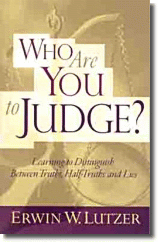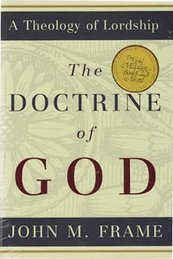Channel News
The Channel News Asia is conducting an online poll and it wants the public's view on what irks us most.
Q5: People who are rude to service staff, maids and cleaners etc.
Do you find this annoying?
Being rude to people is a terrible thing. But, what I find even more annoying is mistreating others who does not have the ability to go against us. To mistreat means to treat badly, cruelly or unfairly. Recently, there is thee case of this employer who allegedly (oops, I think she has pleaded guilty! The court has reserved judgment and the case will be heard again on February 7.) caused the death of her domestic worker. The employer had instructed her 22-year-old maid to hang laundry on a ledge barely one metre wide outside the study of her Windermere condominium in Choa Chu Kang on 20 December 2003. Being rich doesn't mean we could tell others to do whatever we want. If we were the maid, how would we feel? This is a simple truth & i don't think one needs a Ph.D. to understand that "己所不欲,勿施于人" (What you do not wish upon yourself, extend not to others. --- Confucius's Analect, Chapter 15.) I have also heard "stories" where maids are only to have their meals after their employers (some are Christians, or they profess to be) finish theirs. ... The maids eat the leftovers.
Continuating my reflection on Divine love & Human love, I think service staff, maids and cleaners etc. are all people making an honest living. Their jobs should not be looked down by others. Indeed, it always saddens me to see pple being rude to service staff, maids and cleaners etc. When people say Christians are hypocrites, I don't think they have always been unfair. However, whenever I see the people being rude to service staff, maids and cleaners etc. are Christians, I feel those who say Christians are hypocrites may be right in some cases. In these cases, I think we indeed need to repent. How can we not love others when God loves us?
We fail to remember that all that we are, all that we do, and all that we have has been given to us as steward of the gifts of the LORD God our Maker.
“You shall love your neighbour as yourself” (19:18; cf. Mk 12:29-31). Very often, I think we like to ask questions, but when we are given answers we dislike, we shut our ears to them. We start interpreting "neighbour" according to our defintion! We forgot that since God has first loved us (cf. 1 Jn 4:10), love is now no longer a mere “command”; it is the response to the gift of love with which God draws near to us. Those who say theology is useless should note that the biblical concept of Total depravity & sola gratia reminds us that we are not worth God's love. (Biblical Anthropology too!!)
I think it was Robert Schuller who sees "self-love" as spiritually freeing. He denies the biblical teaching of salvation, sin, the sinful nature of man, and original sin. While many many of us Singapore Christians may not know Schuller, but I think many Christians subscribe to his view. We think that "self-love" is more important. Nevermind what the bible says, they say. Very often, many churches tell their members God loves them, but they sledom mention sin, the sinful nature of man, and original sin. This is call preaching to please the audience.
“If anyone says, ‘I love God,' and hates his brother, he is a liar; for he who does not love his brother whom he has seen, cannot love God whom he has not seen” (1 Jn 4:20). In this text, we see that the unbreakable bond between love of God and love of neighbour emphasized.
I think Pope Benedict XVI is right when he says (forgive me if I sound presumptuous!), "Saint John's words should rather be interpreted to mean that love of neighbour is a path that leads to the encounter with God, and that closing our eyes to our neighbour also blinds us to God."
God has become visible in that he“has sent his only Son into the world, so that we might live through him” (1 Jn 4:9). God has made himself visible: in Jesus we are able to see the Father (cf. Jn 14:9). The incarnation of God shows that he has loved us first and he continues to do so; we too, then, can respond with love. To quote again from the Deus Caritas Est: God does not demand of us a feeling which we ourselves are incapable of producing. He loves us, he makes us see and experience his love, and since he has “loved us first”, love can also blossom as a response within us.
Deus Caritas Est: Love of neighbour is shown to be possible in the way proclaimed by the Bible, by Jesus. It consists in the very fact that, in God and with God, I love even the person whom I do not like or even know. This can only take place on the basis of an intimate encounter with God.
I think this is a simple, yet seldom praticed biblical truth. For eg., we often say we have an intimate encounter with God, but when we hear someone criticizing our beliefs, we turn our "artillery" towards that person & start firing, defending, ... ... & yes, without love! How do we know? By the way they sound! By the words they use!
We need to learn to look on the person whom I do not like (or even know) not simply with my eyes and my feelings, but from the perspective of Jesus Christ.
John Calvin once said, "We must not be hindered by the malice of men, but rather contemplate the image of God in them, which by its excellence and dignity moves and enables us to love them."
I think the Deus Caritas Est echoes John Calvin's (or should I say the biblical view): If I have no contact whatsoever with God in my life, then I cannot see in the other anything more than the other, and I am incapable of seeing in him the image of God.
Deus Caritas Est: But if in my life I fail completely to heed others, solely out of a desire to be“devout” and to perform my “religious duties”, then my relationship with God will also grow arid. It becomes merely“proper”, but loveless. Only my readiness to encounter my neighbour and to show him love makes me sensitive to God as well.
I think this is most true of many of us Christians (regardless of RCC or not). We try to look loving, look “proper”, but others can sense that we lack what we are trying to "look". We may performreligious duties such as being the usher, being paert of the worship team, being a cell group leader, or evern speak in tongues, etc. But, these can never be a substitute for love. As 1 Corinthians 13 (NIV) reminds us:
1. If I speak in the tongues of men and of angels, but have not love, I am only a resounding gong or a clanging cymbal.
2. If I have the gift of prophecy and can fathom all mysteries and all knowledge, and if I have a faith that can move mountains, but have not love, I am nothing.
3. If I give all I possess to the poor and surrender my body to the flames, but have not love, I gain nothing.
4. Love is patient, love is kind. It does not envy, it does not boast, it is not proud.
5. It is not rude, it is not self-seeking, it is not easily angered, it keeps no record of wrongs.
... ...
13. And now these three remain: faith, hope and love. But the greatest of these is love.
Can the bible be more clear than this concerning the importance of love?
In Genesis, God said, "Let us make man in our image, in our likeness." (Genesis 1:26-27, NIV) It simply means that "A human being is the image of God." To be created in the image of God means that we have not only the ability, but indeed privilege, of relating to, serving, and loving our heavenly Father. However, have we served God? Have we loved God?
From the same mouth come blessing and cursing. My brothers, these things ought not to be so. (James 3:10, ESV)
Out of the same mouth come praise and cursing. My brothers, this should not be. (James 3:10,NIV)
Or more clearly, in James 3:10, it says, "Out of the same mouth comes praise for God and curses for the image of God." And then he says, "My brothers, these things ought not to be so." That's why the apostle John in the New Testament says, "Don’t even talk to me about loving God if you don't love your neighbor." (1 Jn 4:20) From theses texts, we see that the way we treat an image of God is the way we're treating God.
Insteading of being unloving to the image of God, we should be multiplying the images of God. We should be spreading the Gospel. When we bring people into the faith we're actually multiplying redeemed images of God. Evangelism is not about teaching and raising second generation Christians. When we are loving & nice to somebody in Jesus' name, we evangelise, we witness. When we bring somebody to church & we say, "Have you ever considered the claims of Jesus on your life?", we need also to ask whether our lives reflect the the power of the cross, whether our lives reflect the awesome love of God? Many who chose not to believe say, "So what if God loves us, but we don't see Christians being loving. If God can't change their attitude, I don't see how He can save me!"
What's our response? May God help us to love Him & others.



No comments:
Post a Comment